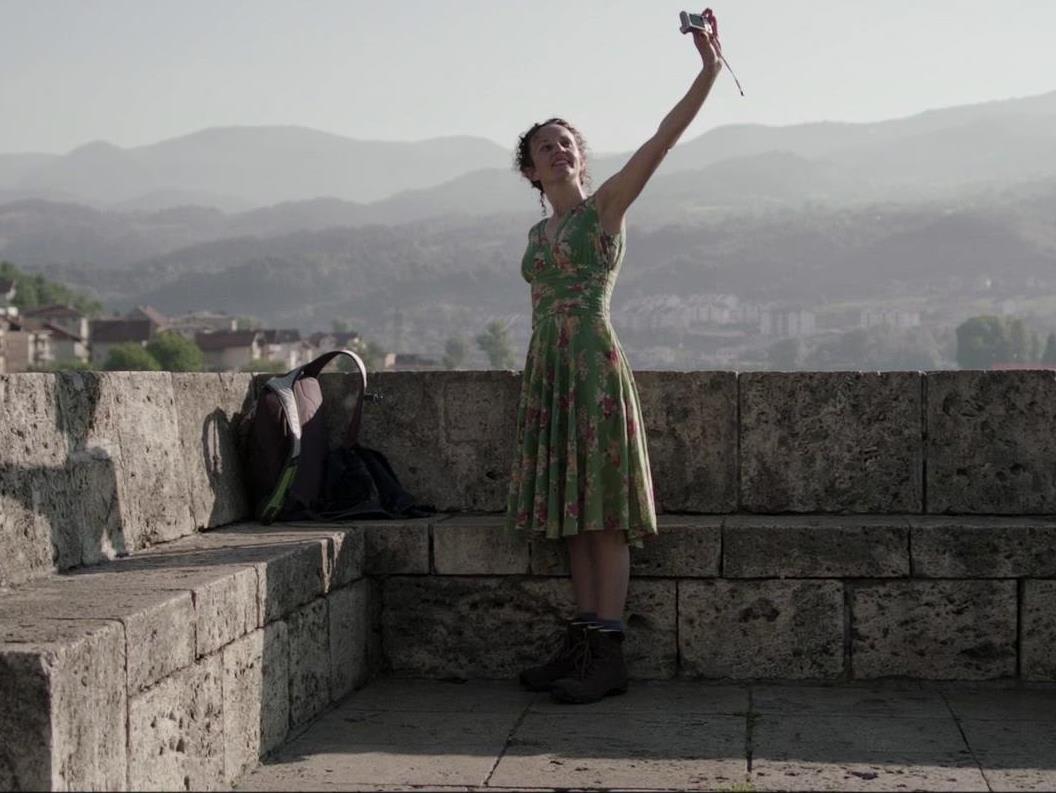It’s the ultimate tourist act: a holidaymaker roams a foreign land, reads a book set in the same area, and decides to visit the specific locations contained within. For most, veering along a path sparked by literary inspiration leads to an engaging side trip and an endearing anecdote. For Kym, following a whim sets her on a course through the horrors of recent history. She is no ordinary traveller, and For Those Who Can Tell No Tales is far from a standard vacation chronicle.
Departing Sydney with a head filled with adventure, Kym treks through Bosnia and Herzegovina devouring Nobel Prize-winning novelist Ivo Andrić’s The Bridge on the Drina – and, after taking a fancy to his tale, determines to visit its setting of Višegrad. She spies the famous structure, and stays at a hotel, Vilina Vlas, recommended by a guidebook. After spending the night anxious and sleepless, she delves into the background of her stopover, finding the carnage of conflict echoing in her well-meaning detour.
Australian playwright Kym Vercoe inhabits the central role and influences the story, the on-screen narrative a mirror of her own off-screen journey. That close relationship between performance and experience not only flavours the entire cinematic account, but is also instrumental in the permeating poignancy of the feature’s content. Her reaction to the spaces bloodied by the crimes of the Bosnian war haunts an effort that merges memory with documentary and innocence with atrocity. A return trip only deepens the revelations, as the incompatible sides of the situation emerge.
‘I didn’t really know that you could just clean up a place and pretend that nothing ever happened,’ Vercoe confesses in the video diary that provides the film’s structure, a realisation that reverberates for its flashback-fuelled duration. With director and co-writer Jasmila Žbanić (On the Path), and fellow scribe Zoran Solomun (TV’s Tatort), she keeps probing this observation over an abridged but immersive 73 minutes. Vercoe questions whether the seemingly uncaring locals either reluctant to speak or intent on covering up the truth constitute a way for a troubled town to move forward, or a mechanism for perpetrators and conspirators to purposefully forget the past.
With Žbanić at the helm in only her second full-length work since Golden Bear winner Grbavica: The Land of My Dreams and her third in total, For Those Who Can Tell No Tales continues exploring her country’s torments, this time filtered through a visitor’s perspective. As captured by cinematographer Christine A. Maier (Black Moon), the feature’s visuals give pause to Žbanić’s two forms of presentation: intimate recorded declarations that heighten Vercoe’s crucial role, and lingering lensing of the sights and sounds of the trip in both idyllic and irate incarnations.
Taken from a direct quote from Andrić, that the title declares a tribute to voiceless victims is heartbreakingly accurate, with For Those Who Can Tell No Tales single-minded in its efforts to commit its details to record. That depth is absent outside of the portrayal of the fictionalised protagonist may detract from the story, but never from the message. Given the content presented in the travelogue turned historical nightmare, perhaps the blunt approach is the most effective.
Rating: 3 ½ out of 5 stars
For Those Who Can Tell No Tales
Director: Jasmila Žbanić
Bosnia and Herzegovina, 2013, 73 mins
Human Rights Arts and Film Festival
http://hraff.org.au/
Melbourne: 8 – 22 May
Sydney: 27 – 31 May
Perth: 3 – 5 June
Brisbane: 3 – 5 June
Darwin: 16 – 17 August
Sydney Film Festival
http://www.sff.org.au/
4 – 15 June
Actors:
Director:
Format:
Country:
Release:





